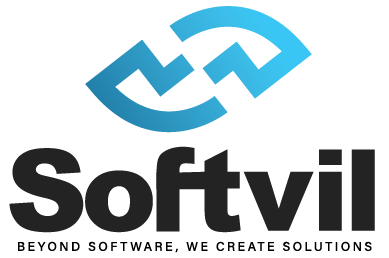In an era characterized by global connectivity, businesses are increasingly turning to offshore development as a strategic means to enhance efficiency and competitiveness. As enterprises seek to leverage specialized skills and cost advantages, the concept of collaborating with a software outsourcing partner gains prominence. This paradigm shift is not merely a trend but a well-founded strategy that has witnessed a surge in adoption across industries. Organizations are recognizing the potential benefits of tapping into the expertise and resources offered by offshore partners, enabling them to navigate challenges and accelerate development processes.
This escalating reliance on offshore partnerships, however, introduces a set of unique challenges, ranging from time zone differences to cultural nuances and communication barriers. As businesses embark on this global journey, the significance of a proactive approach to mitigating risks becomes paramount. This article delves into the multifaceted landscape of offshore development, identifying common challenges and presenting practical solutions. By understanding the intricacies of this dynamic collaboration model, businesses can position themselves to not only harness the advantages of offshore partnerships but also navigate potential obstacles with strategic foresight and resilience.
Common Challenges in Offshore Development

Embarking on offshore development endeavors brings forth a myriad of challenges that demand careful consideration and strategic planning. One significant hurdle lies in managing time zone differences, where teams operate across diverse geographical locations, potentially disrupting the synchronization of tasks and project timelines. The intricate tapestry of cultural nuances poses another formidable challenge, as diverse working styles and expectations can impact collaboration and overall project cohesion. Effective communication becomes a crucial aspect, emerging as a challenge due to linguistic disparities, varying communication styles, and the potential for misinterpretation.
Time Zone Management
The intricate dance of time zone disparities can impede the seamless flow of collaboration. Coordinating activities, scheduling meetings, and ensuring real-time communication become intricate tasks that require innovative solutions and careful time management strategies.
Cultural Awareness and Nuances
Cultural diversity, while enriching, also introduces complexities. Understanding and respecting diverse working cultures is paramount to fostering a harmonious and productive work environment. Cultural awareness training and open communication channels are pivotal in navigating these nuances.
Communication Strategies
Addressing the challenge of communication barriers involves deploying effective strategies such as leveraging advanced communication tools, establishing clear protocols, and encouraging transparent and frequent interactions. Overcoming linguistic differences and ensuring a shared understanding of project goals are central to successful offshore collaborations.
Understanding the Risks

Understanding the risks associated with offshore development involves delving into the specific challenges that can impede the smooth progression of projects. Time zone disparities can result in delays and hinder real-time collaboration, impacting project timelines and overall efficiency. Cultural nuances may lead to misinterpretations or misunderstandings, affecting team dynamics and potentially derailing the project trajectory. Communication barriers, often arising from linguistic differences or technological issues, pose a risk to the clarity and effectiveness of information exchange within the software outsourcing partner relationship.
Time Zone Management Impact
The impact of time zone differences is exemplified in delayed responses, extended project timelines, and challenges in organizing synchronous collaboration. This can lead to decreased productivity and potential bottlenecks in critical project phases.
Cultural Awareness and Nuances Impact
Real-world examples might showcase instances where a lack of cultural understanding resulted in project misunderstandings, affecting team morale and cohesion. Addressing cultural nuances becomes imperative to foster a collaborative and inclusive work environment.
Communication Strategies Impact
Illustrative case studies can highlight scenarios where communication breakdowns, whether due to language barriers or technological glitches, led to project errors or misaligned expectations. Effective communication strategies, when implemented, can mitigate such risks, ensuring smooth information flow and understanding between software outsourcing partners.
Proactive Solutions

Proactive solutions play a pivotal role in mitigating risks associated with offshore development, ensuring a smooth and efficient collaboration between businesses and their software outsourcing partners. To address time zone differences, implementing a staggered work schedule or adopting asynchronous communication tools can facilitate continuous project progress, allowing teams to work seamlessly across different time zones. Emphasizing proactive time management, such as setting clear deadlines and utilizing project management tools, contributes to overcoming the challenges posed by temporal disparities.
Cultural Awareness Strategies
For navigating cultural nuances, fostering cultural awareness within teams is paramount. Offering cross-cultural training and creating forums for open dialogue enable team members to understand and appreciate diverse perspectives, fostering a collaborative and inclusive work environment. Additionally, establishing shared cultural guidelines helps in aligning working styles and expectations.
Communication Enhancement
To tackle communication barriers, leveraging advanced communication tools, like video conferencing and project management platforms, enhances real-time collaboration and minimizes misunderstandings. Implementing a robust communication protocol, including regular check-ins and status updates, promotes transparency and ensures that all stakeholders, including the software outsourcing partner, are well-informed throughout the project lifecycle. These proactive strategies collectively empower businesses to not only navigate the challenges of offshore development but also foster a resilient and thriving collaboration with their software outsourcing partners.
Time Zone Management

Effectively managing time zone differences is a critical aspect of successful collaboration with a software outsourcing partner, ensuring seamless coordination and progress across global teams. Implementing a staggered work schedule, where overlapping hours are maximized, enables real-time communication and collaboration. This approach allows teams to address urgent matters promptly while minimizing delays in decision-making processes. Additionally, adopting asynchronous communication tools, such as project management platforms with robust messaging features, facilitates continuous collaboration, allowing team members to contribute and review updates at their convenience.
Exploring Tools and Methodologies
Various tools and methodologies can enhance time zone management in offshore development. Utilizing scheduling tools that display multiple time zones aids in coordinating activities and scheduling meetings at mutually convenient times. Agile methodologies, with their emphasis on regular and structured communication, can be particularly effective in managing time zone challenges. Daily stand-up meetings and sprint planning sessions, conducted virtually, provide a framework for consistent collaboration and project updates, ensuring that all team members, regardless of their geographical location, stay informed and engaged. By embracing these tools and methodologies, businesses can optimize their time zone management strategies, fostering a cohesive and productive relationship with their software outsourcing partners.
Fostering Cultural Awareness

Cultural awareness is integral to the success of offshore collaborations with a software outsourcing partner, as it enhances teamwork, communication, and overall project efficiency. Recognizing the significance of diverse cultural backgrounds in a global team fosters a collaborative and inclusive work environment. Acknowledging and appreciating distinct working styles, communication norms, and expectations contribute to a harmonious team dynamic. By understanding the cultural context, team members can navigate potential challenges and leverage the strengths that diverse perspectives bring to the table.
Tips on Fostering Cultural Awareness
- Cross-Cultural Training: Implementing cross-cultural training programs equips team members with the knowledge and skills needed to navigate cultural nuances effectively.
- Open Communication Channels: Encourage open dialogue where team members feel comfortable sharing their cultural experiences and perspectives. This promotes understanding and helps dispel stereotypes.
- Shared Cultural Guidelines: Establishing clear cultural guidelines that define expected behaviors and communication norms creates a common understanding within the team.
- Regular Team Building Activities: Engage in virtual or in-person team-building activities that promote camaraderie and strengthen the bond among team members, irrespective of their cultural backgrounds.
By emphasizing cultural awareness and implementing these tips, businesses can cultivate a collaborative and culturally intelligent team environment, enhancing the success of their offshore collaborations with a software outsourcing partner.
Communication Strategies

Addressing communication barriers is paramount for successful collaboration with a software outsourcing partner in offshore development. Effective communication strategies not only bridge geographical gaps but also promote clarity, understanding, and synergy within global teams.
Utilizing Technology
Leveraging advanced communication tools is essential in overcoming distance-related challenges. Video conferencing platforms, instant messaging, and project management software facilitate real-time interactions, fostering a sense of connection among team members despite physical separation. These technologies help clarify project requirements, share updates, and address concerns promptly.
Establishing Clear Protocols
Defining communication protocols is crucial to avoid misunderstandings. Clearly outlining expectations regarding response times, preferred communication channels, and meeting schedules creates a structured and reliable framework for interactions. This ensures that all team members, regardless of their location, are on the same page.
Regular Check-ins
Frequent and structured check-ins play a vital role in maintaining alignment and transparency. Daily stand-up meetings, weekly updates, and sprint reviews provide opportunities for teams to discuss progress, challenges, and priorities, fostering a collaborative environment and addressing potential issues proactively.
Conclusion
In conclusion, navigating the complex terrain of offshore development demands a keen understanding of challenges and a commitment to proactive strategies. Time zone differences, cultural nuances, and communication barriers underscore the need for thoughtful approaches. By adopting staggered work schedules, embracing cultural awareness, leveraging advanced communication tools, and maintaining regular check-ins, businesses can mitigate risks and foster successful collaborations with their software outsourcing partners. The proactive approach not only safeguards against potential pitfalls but also enhances the overall efficiency and effectiveness of offshore development initiatives. In an interconnected global landscape, prioritizing foresight and resilience ensures a thriving partnership in the realm of software outsourcing.

